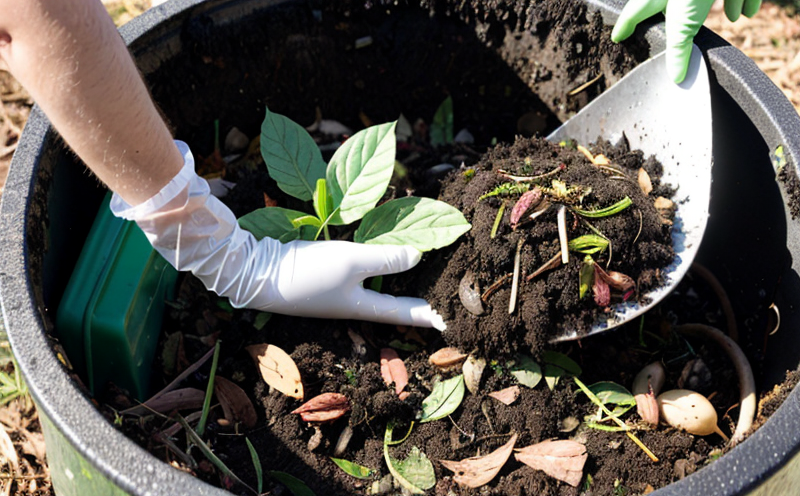ASTM E2998 Validation of Microbial Identification Methods in Compost
The ASTM E2998 standard is pivotal in ensuring the accuracy and reliability of microbial identification methods used in compost. This service focuses on validating these methods to meet stringent quality control standards, ensuring that the compost produced meets specific biological and microbiological criteria set by regulatory bodies.
Composting involves a complex process where organic materials are decomposed into stable humus through the action of microorganisms. The effectiveness of this process is critical for producing high-quality compost suitable for agricultural use or other applications. Accurate microbial identification ensures that the compost contains beneficial microorganisms and lacks harmful pathogens, which is crucial for public health and environmental safety.
The ASTM E2998 validation process involves several key steps:
- Sample preparation: Ensuring samples are representative of the entire batch.
- Microbial isolation: Isolating specific microbial strains from compost samples.
- Identification methods: Utilizing various analytical techniques to identify microorganisms accurately.
- Data analysis: Comparing results against established reference standards.
This process is essential for maintaining the quality and safety of compost, ensuring it meets the stringent requirements set by international standards such as ASTM E2998. It helps in preventing the spread of harmful microorganisms while promoting beneficial microbial activity that enhances soil fertility and plant growth.
The ASTM E2998 validation process ensures that the methods used for identifying microbes are accurate, reproducible, and reliable, which is critical for maintaining quality control standards in compost production. This service is particularly important for regulatory compliance and ensuring the safety of products intended for agricultural or environmental use.
| Industry Applications |
|---|
|
The ASTM E2998 validation process is widely used across various sectors, including agriculture, environmental protection, and research. It ensures that the microbial identification methods used in compost production meet the highest quality control standards, thus enhancing trust and reliability.
Benefits
The ASTM E2998 validation process offers numerous benefits to businesses involved in waste management and composting. These include:
- Increased Confidence in Compliance: Ensures that all methods used meet the stringent requirements set by regulatory bodies.
- Enhanced Product Quality: Ensures that the compost produced is of high quality, free from harmful pathogens.
- Improved Brand Reputation: Companies can build a strong reputation for producing safe and reliable products.
- Cost Savings: By ensuring compliance upfront, companies avoid costly recalls or legal issues later on.
In summary, the ASTM E2998 validation process is critical for maintaining quality control standards in compost production. It ensures that all methods used are accurate, reproducible, and reliable, which is essential for regulatory compliance and ensuring public health and safety.
Industry Applications
The ASTM E2998 validation process has significant applications across various industries:
- Agricultural Compost Producers: Ensure that their compost is safe for use in agriculture.
- Environmental Agencies: Monitor and regulate the quality of compost used in environmental projects.
- Research Institutions: Conduct research on microbial activity in compost to improve production methods.
- Regulatory Bodies: Ensure that all products meet public health and safety standards.
The ASTM E2998 validation process is essential for maintaining quality control standards in compost production. It ensures that the methods used are accurate, reproducible, and reliable, which is critical for regulatory compliance and ensuring public health and safety.
International Acceptance and Recognition
The ASTM E2998 standard has gained widespread acceptance in many countries. It is recognized by:
- Agricultural Organizations: For ensuring the quality of agricultural products.
- Environmental Protection Agencies: To regulate the use and production of compost.
- Research Institutions: As a benchmark for validating microbial identification methods.
The ASTM E2998 standard is also used in various international standards such as ISO, EN, and IEC. Its acceptance ensures that the methods used are consistent with global best practices and regulatory requirements.
The ASTM E2998 validation process has been adopted by numerous countries around the world, including the United States, Canada, Europe, and Asia. This widespread recognition underscores its importance in ensuring quality control standards in compost production.





